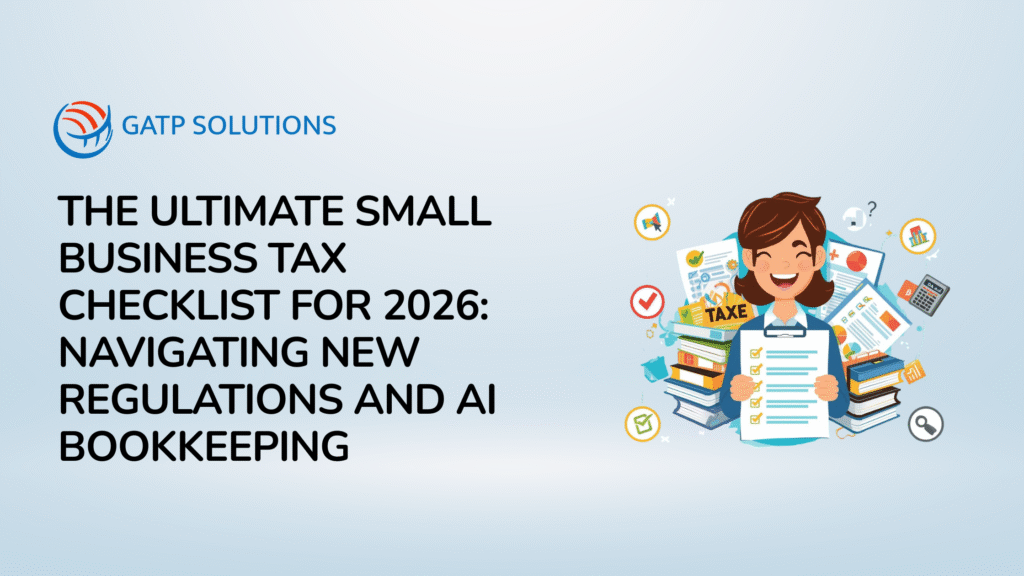The holiday season brings a lot of momentum for the ecommerce businesses. People around the season purchase gifts, add new items for upgrading, treat themselves etc. The most important seasons for retailers are the Black Friday sales and the Cyber Monday sales. These days often become the biggest revenue drivers for the whole year. With the increase in demand, the sales surge, increasing revenue and profits for the businesses. However, between all the surges and profits, business owners often forget about tax compliance. Like, thresholds may get crossed quietly, marketplace and direct sales may get mixed, and tax rates shift by county and city. Missing these pointers may lead to trouble later.
This is why compliance during this period is not just a back-office function. It is part of a retailer’s seasonal planning and financial protection. In this blog, we will explore everything that businesses need to know, from nexus rules to marketplace responsibilities, along with guidance from an accounting perspective.
Why does BFCM push retailers into high-risk compliance situations?
The short answer is volume. But the real reason goes deeper.
During Black Friday sales and Cyber Monday sales, the number of orders increases far beyond normal monthly averages. This spike becomes the exact moment when retailers accidentally cross economic nexus thresholds in states they never planned on entering. Since thresholds are measured across the calendar year, one successful weekend can push a business over the limit.
A few common situations make this period especially risky:
- Marketplace volume plus website volume pushes cumulative sales beyond a state threshold.
- Inventory stored in a new warehouse triggers physical nexus.
- Discount rules, free shipping offers, or bundled promotions distort tax calculations if not configured correctly.
Businesses often catch these issues only after the holiday rush, and by then, filings, penalties, and interest may already begin.
How do economic and physical nexus rules impact online retailers during BFCM?
Understanding economic nexus in real terms
Economic nexus rules determine when a business must collect and remit sales tax in a state. For most states, the threshold is one of the following:
- $100,000 in sales
- 200 transactions
- Or a higher threshold like $250,000 or $500,000 depending on the state
This matters because Cyber Monday sales often increase in fast growing states. Many businesses assume they have time to register after the holidays, but the states usually consider the threshold crossed on the exact day the sales occur.
This is where accounting for ecommerce companies helps the most. Threshold tracking requires real-time reporting and state-by-state sales breakdowns, something standard ecommerce dashboards rarely offer.
Why physical nexus still matters
Physical nexus triggers include:
- Storing inventory in warehouses or FBA centers
- Having employees or contractors operating in a state
- Attending trade shows with the intent to sell
- Operating temporary or pop-up locations
For example, a retailer using nationwide fulfillment centers may trigger physical nexus weeks before BFCM without realizing it. Because tax obligations start the moment inventory enters a warehouse, this becomes a silent risk.
How do marketplace facilitators change tax
responsibilities for retailers?
Marketplace facilitators like Amazon, Walmart, Etsy, and now Shopify’s Shop app automatically collect and remit sales tax on behalf of their sellers. This helps, but it does not eliminate compliance responsibilities for retailers.
What marketplaces do
- Calculate, collect, and remit sales tax for marketplace transactions
- File marketplace-specific tax reports
What sellers still need to handle
- Tracking cumulative sales toward nexus thresholds
- Registering in states where thresholds are crossed
- Collecting tax for direct-to-consumer channels
Even though marketplaces collect the tax, the sales still count toward the economic nexus. This is one of the most common misunderstandings business teams face during Black Friday sales because the volume can push a business into new states quickly.
What should retailers prepare before BFCM to avoid compliance mistakes?
Two to three weeks before Black Friday Sales and Cyber Monday Sales, businesses should begin preparing their systems. A structured checklist keeps the process clear and predictable.
Pre-BFCM preparation checklist
- Review annual sales totals for each state.
- Identify states where thresholds will likely be crossed.
- Register early in states that show threshold risk.
- Test discount and promotion configurations.
- Validate shipping taxability rules for each major state.
- Confirm integrations between ecommerce platforms and tax automation software.
- Review nexus triggers tied to inventory storage.
For small operations or first-time BFCM participants, this is a stage where outsourcing accounting services for small business can reduce stress significantly and ensure accurate setup before the peak weekend.
What tax calculation challenges become more complicated during BFCM?
Why tax rate accuracy matters
The United States has over twelve thousand tax jurisdictions. Rates shift by:
- County
- City
- Special district
Because these rates can differ between two addresses in the same ZIP code, automated, address-level accuracy is necessary. During BFCM, high order volume multiplies the risk of miscalculations.
How shipping taxability becomes confusing
Shipping is taxable in some states and exempt in others. Some tax it only when bundled with the item price. Some tax only certain types of shipping.
When holiday promotions introduce free shipping, express shipping, or bundled offer combinations, the tax rules become even more complex.
Why discount structures require more attention
The following scenarios often cause issues:
- Retailer discounts reduce taxable value.
- Manufacturer funded discounts often do not.
- Buy one get one free promotions create use tax obligations.
- Buy one get one discounted avoids the use tax issue but still needs clear system logic.
This is where ecommerce bookkeeping services help categorize sales correctly so tax and revenue records stay aligned.
What filing and reconciliation responsibilities appear after BFCM?
The work does not stop once the orders slow down. Post-BFCM filing becomes just as important.
Filing requirements often change
Many states increase filing frequency when sales rise. A business filing annually may suddenly need to file quarterly or monthly due to BFCM volume.
Reconciliation becomes important
Businesses should:
- Reconcile tax collected versus tax owed.
- Identify undercollection or overcollection.
- Prepare adjustments early.
- Verify marketplace reports.
Errors discovered in February or March are far more expensive than errors cleaned up in the first week after the holiday rush.
Retailers who work with finance and accounting outsourcing companies often complete this stage smoothly because the reporting structure is already in place.
What audit risks increase for ecommerce retailers after BFCM?
Regulators pay attention to unusual spikes in sales volume. The Black Friday Sales and Cyber Monday Sales weekends are exactly the unusual spikes that regulators keep an eye on.
Key audit triggers include:
- Mismatched tax rates across similar transactions
- Incorrect treatment of shipping or discounts
- Missing or incomplete exemption certificates
- Underreported marketplace sales
- Inconsistent system logic between marketplaces and websites
One undercollected weekend can create enough discrepancies to affect the entire year’s tax exposure.
This is why consistent documentation matters:
- Transaction logs
- Shipping records
- Marketplace reports
- Rate tables
- Discount configurations
Retailers who maintain these records through automated systems or outsourced accounting teams reduce both audit exposure and penalty risks.
Where do automation and outsourced accounting support matter most during BFCM?
Automation is essential once order volume increases. But automation alone is not enough, which is why many retailers partner with accounting companies for oversight and interpretation.
Why automation helps
- Real-time rate calculation
- Threshold tracking
- Address-level accuracy
- Automated filing
- Consistent reporting
Why outsourced accounting teams complement automation
- Human oversight for edge cases
- Review of tax logic for promotions
- Reconciliation support
- Multi-state filing management
- Guidance on new regulatory changes
Small businesses often depend on outsourcing accounting services for small businesses to manage this period smoothly. Larger retailers depend on specialists who understand the unique challenges of accounting for ecommerce companies.
How does GATP Solutions help businesses manage BFCM tax compliance?
Retailers often reach out to GATP Solutions when they want ongoing compliance support that fits both peak season demands and year-round responsibilities.
At GATP Solutions, teams bring hands-on experience in:
- Multi-state sales tax registration
- Nexus tracking
- Sales tax automation setup
- Marketplace and ecommerce reconciliations
- Return preparation and filing
- Post-BFCM audit readiness
- Accurate treatment of discounts, shipping rules, and promotions
With deep expertise in ecommerce accounting, we help you stay compliant, reduce risk, and enter the new year with clarity instead of uncertainty. Many businesses rely on this level of support especially as Black Friday sales and Cyber Monday sales continue to grow each year.
What should businesses remember as they prepare for the next BFCM cycle?
Peak sales opportunity always comes with peak compliance responsibility. When retailers understand nexus rules, keep rate accuracy in check, track promotions correctly, and prepare for post-season filing, the entire BFCM period becomes easier to manage.
With the right mix of automation and expert support from partners like GATP Solutions, ecommerce businesses can focus on growth while knowing their tax obligations are covered with accuracy and confidence.
Frequently Asked Questions
- How do Black Friday and Cyber Monday affect sales tax requirements for ecommerce retailers?
During Black Friday sales and Cyber Monday sales, order volume increases sharply, which often pushes retailers over economic nexus thresholds in new states. Once a threshold is crossed, the business must register, collect tax, and file returns in that state.
- Do marketplace facilitators handle all tax obligations during the holiday season?
Marketplaces collect and remit sales tax for marketplace transactions, but the cumulative sales still count toward nexus. Retailers must remain compliant for website and direct sales. This is why finance and accounting outsourcing companies often manage threshold tracking during peak seasons.
- Why does shipping taxability become complicated during BFCM?
Shipping tax rules vary by state. Some tax it fully, some partially, and others exempt it. With more free shipping and promotional offers during Black Friday sales, retailers must configure systems carefully to avoid undercollection.
- How can small businesses manage multi-state filings after BFCM?
Many choose outsourcing accounting services for small business to keep filings accurate, especially when multiple states change filing frequency after high-volume periods. Outsourced teams handle reconciliation, return preparation, and deadline management.
- What accounting challenges do ecommerce companies face during BFCM?
The biggest challenges include tax rate accuracy, discount tax treatment, marketplace reconciliation, and multi-state thresholds. Accounting for ecommerce companies requires advanced reporting and consistent record-keeping to avoid compliance gaps.
- How can ecommerce retailers maintain accurate books during Cyber Monday sales?
Most rely on ecommerce bookkeeping services to categorize transactions correctly, align sales records with tax data, and reconcile marketplace reports. Consistent bookkeeping prevents errors that can trigger audits after Cyber Monday sales.




